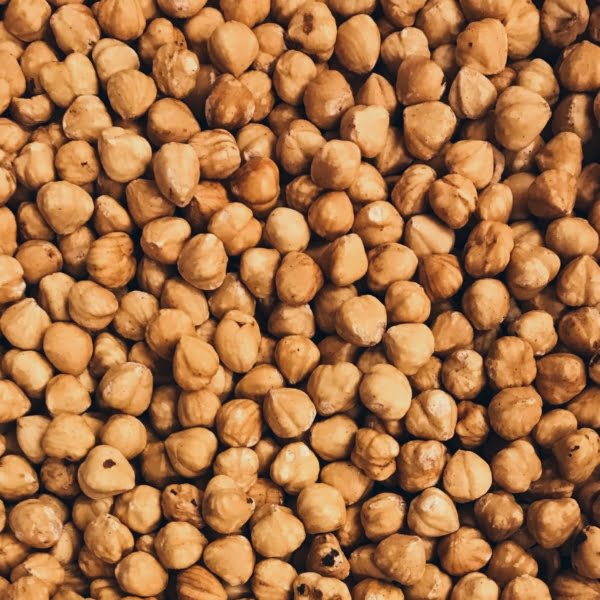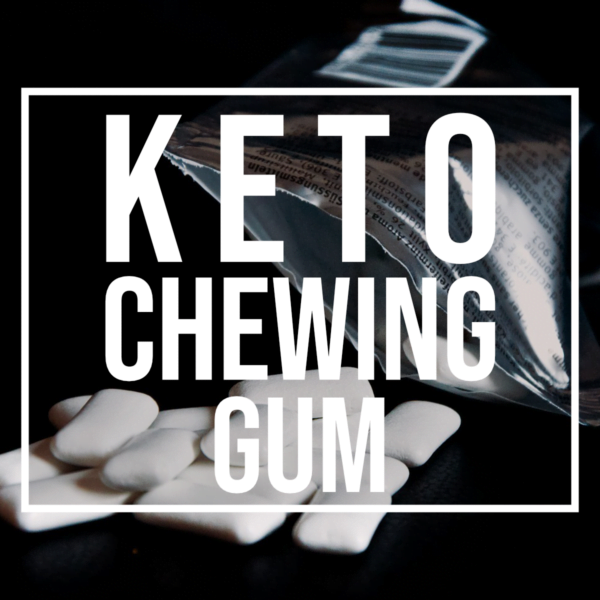Are sugar free sweets safe for keto?
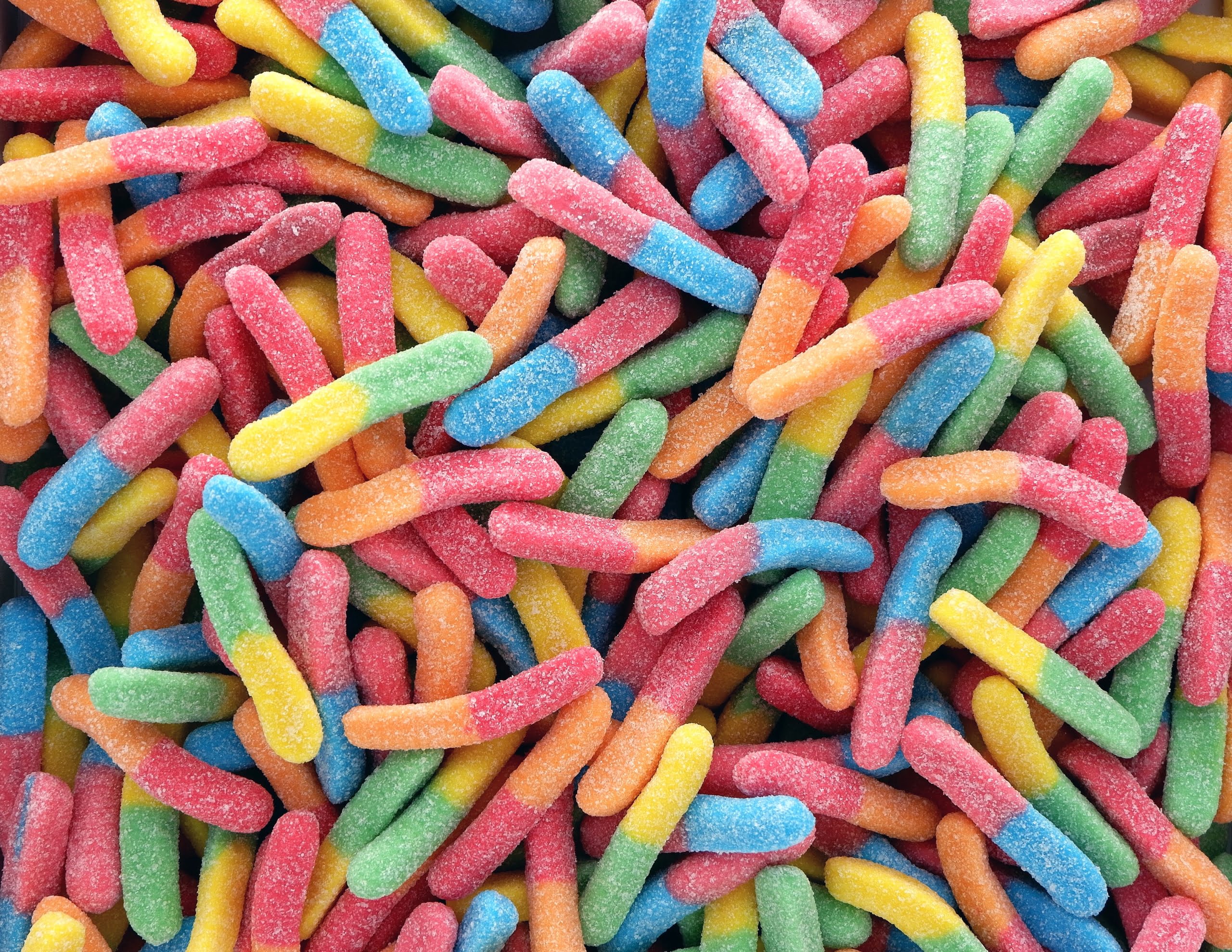
Most UK supermarkets stock sugar free sweets. These are normally marketed as diabetic friendly and contain little to no sugar. Instead, sweeteners are used. These can be artificial (like sucralose, aspartame) or natural (like stevia). Sounds great, but are sugar free sweets keto?
Short answer, probably not. But read on to find out why, and what you need to check.
Not all sweeteners are equal
There are a lot of sweeteners. Some are actually worse than normal cane sugar as they spike your blood sugar and insulin levels. It’s not an exhaustive list, but ones to avoid are:
- White / Brown sugar
- Maple syrup
- Agave syrup
- Honey
- Coconut sugar
- High fructose corn syrup
OK, so what sweeteners are fine for keto?
- Stevia
- Erythritol
- Monk fruit extract
- Aspartame
- Sucralose
While some argue that a few of them have unconfirmed long term side effects (sucralose, aspartame). Others have no adverse reaction to them. It’s up to you to decide on what to consume. However, if you like diet fizzy drinks, then they usually contain aspartame. It’s actually one of the most common sweeteners, so it’s hard to avoid.
There are a few more sweeteners that are common in sugar free sweets and those are xylitol, sorbitol and maltitol. They are also commonly blended with additives like dextrose and maltodextrin to reduce their excessive sweetness. These tend to have a high glycaemic index that can kick you out of ketosis.
Xylitol / Sorbitol
Commonly found in sugar free chewing gum and other diabetic friendly sweets. They are sugar alcohols derived from plants. While they are low carb, they do actually contain some so it does eat into your macros.
Ever noticed the small print on the back of chewing gum packs, that say something like “excessive consumption can cause laxative effects” (BBC). That’s because of the artificial sweetener. Side effects can include:
- Bloating
- Diarrhoea
- Gas
- Stomach aches and cramps
As you can imagine, probably not something you want to have, after enjoying some lovely sweets.
Maltitol
The other most common sweetener is Maltitol (Diabetes.co.uk). It’s another sugar alcohol and is about 90% as sweet as sugar. One of the main benefits is that it behaves like sugar in cooking and production, which makes it ideal as a replacement. As a result of this, you will find it in many mass-produced food and drink products. Especially ones marketed as sugar free and ok for diabetics.
So is it OK on keto? No! Here’s why:
- Like sugar, it still raises blood sugar and increases insulin response – this can kick you out of ketosis and leave you craving sugary / carb-laden products.
- Contains around 1/2 of the calories as sugar – not strictly a problem for keto, but something to be wary of if you’re restricting your intake.
- Can cause gastrointestinal symptoms (diarrhoea, gas, bloating, stomach aches).
The last one is the nail in the coffin for Maltitol (and most other sweeteners ending in ‘ol’). In many people, it can cause varying digestive distress. Resulting in you running to the bathroom multiple times, praying to an almighty deity to stop the torrential tide that is now exiting you.
Sugar free sweets
So with that out of the way, let’s take a look of some products that are marketed as sugar free.
One of the big chain supermarkets Aldi, stock a wide range of sugar free sweets, including:
- Rhubarb & Custard Sugar Free Sweets
- Creamy Strawberry Sugar Free Sweets
- Soft Foams
- Mini Gums
- Lemon Sherbets
- Dairyfine Choc-O-Low Milk Chocolate
- Dairyfine Choc-O-Low Dark Chocolate
Let’s take a closer look at some of those.
Dominion Sugar Free Mini Gums and Soft foams
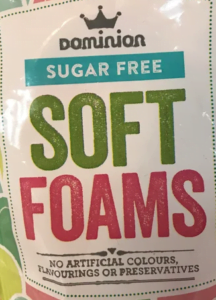
The front of the packaging markets them as sugar free and suitable for vegetarians. Great, let’s look at the ingredients on the back.

Ingredients are usually listed in order of the largest quantity first. In this case, it’s Maltitols! You can even see that there is a warning at the bottom about possible laxative effects. Trust me, you don’t want to eat these sweets if you’re not near a porcelain throne.
Result: Not keto-friendly
Dairyfine Choc-O-Low Milk (and Dark) Chocolate
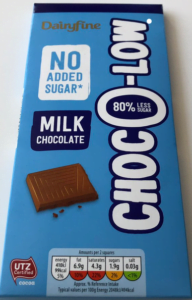
What about the Chocolate? The front pack says 80% less sugar (90% for dark), which sounds great. But if you look at the ingredient list, Maltitol is the main sweetener again. So not good for keto.

Result: Not keto-friendly
What to look out for
Now that you’ve seen why some sugar free sweets are not keto-friendly, let’s take a look at what you should look out for:
Ingredients
The main sweetener in sugar-free sweets for keto should ideally be made up of any amounts of stevia or erythritol and a small amount of sucralose or aspartame is usually fine. However, some sugar could still be included if it’s a very small amount. Although, some keto purists would say any sugar is a big no-no.
Other ingredients will still contribute to the total carbohydrate count, so you need to be careful to not exceed your daily intake allowance (most try and stay under 20g).
Sweet treat examples
Lindt Excellence 90% Cocoa Chocolate Bar
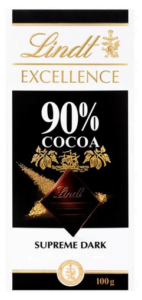
One of the favourite chocolates amongst keto groups. It has 14g of carbs per 100g, and has rich taste so you’re unlikely to eat it all in one go. Available in most supermarkets and perfect as an occasional sweet treat (but not too often)!
Nutrition per 100g (bar):
- Energy: 592 kcal
- Fat: 55g
- Carbohydrate: 14g
- Protein: 10g
- Salt: 0.03g
This doesn’t actually include any sweeteners but does have a small amount of sugar. However, as it’s so small it should be fine for keto, so long as you can fit it in your daily carb allowance.
Related – Check out my article on the best low carb chocolate bars
Aldi Dark Chocolate Flavour Coated Nut & Sea Salt Bars
These little bars consist of almonds and peanuts coated with a dark chocolate flavour sauce. Each bar contains 5.9g of carbs, which is reasonable as an occasional treat. You just have to be careful to not eat all 4 bars in one sitting!
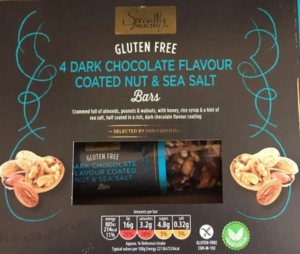
For sweetness, they use a mixture of inulin, sugar and honey. All are very small quantities so while not great for keto, they shouldn’t spike your blood sugar level too much.
Nutrition per bar (40g):
- Energy: 214 kcal
- Fat: 16g
- Carbohydrate: 5.9g
- Fibre: 8.5g
- Protein: 6.9g
- Salt: 0.32g
Summary
As you’ve probably guessed, there aren’t too many sugar-free sweets for keto available in the UK (yet). The ones that are, are either very expensive or have a strange chemical taste that I won’t recommend.
In conclusion, always check the ingredient label. If it contains any of the sweeteners ending in ‘ol’, then it’s probably not good for keto. Although, that being said, sweeteners can affect people differently. You may be fine, and not experience any of the downsides (well done you, I’m envious). I recommend trying them at least once, and see how you feel after a couple of hours.
